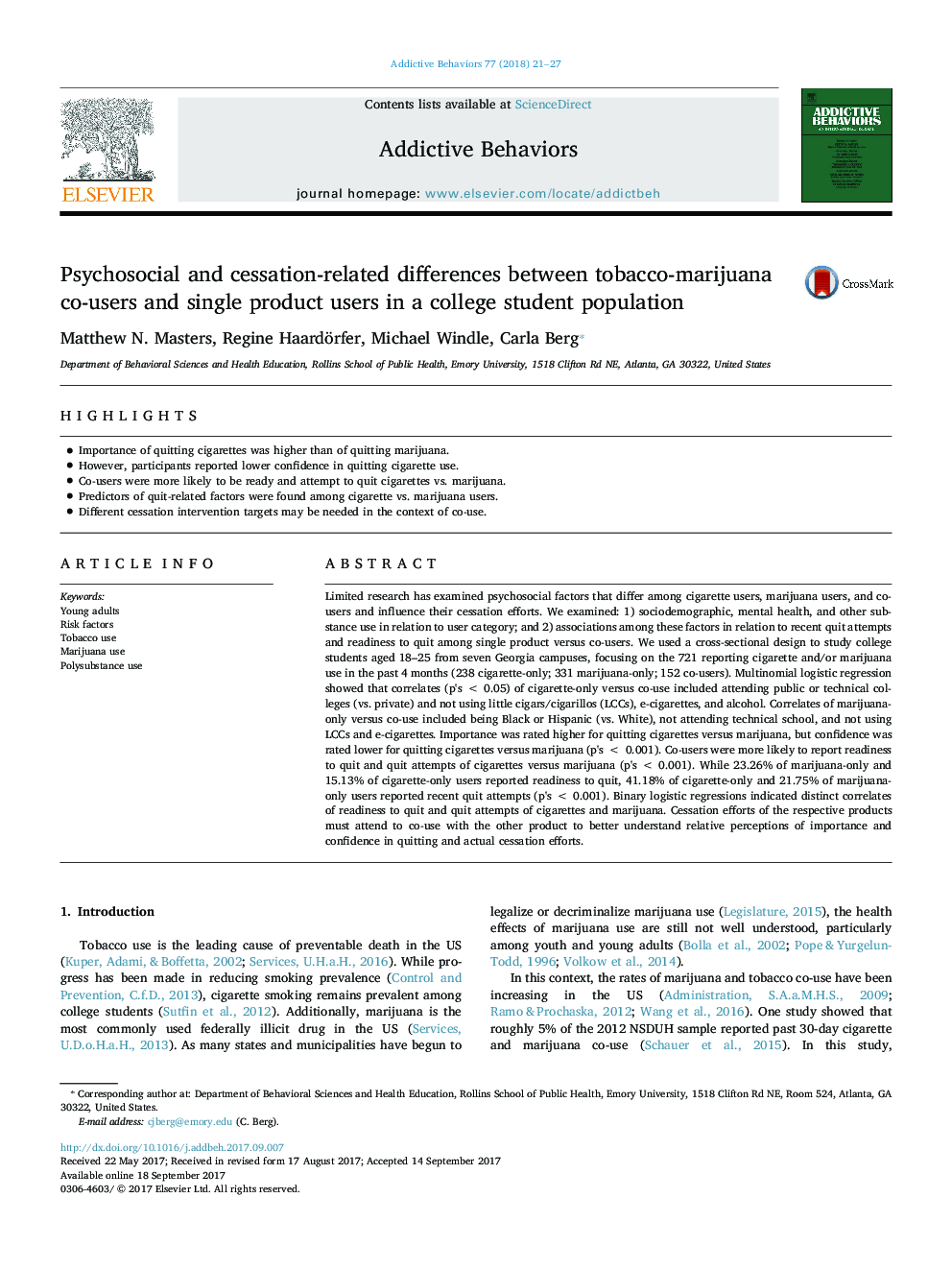| کد مقاله | کد نشریه | سال انتشار | مقاله انگلیسی | نسخه تمام متن |
|---|---|---|---|---|
| 5037527 | 1472494 | 2018 | 7 صفحه PDF | دانلود رایگان |
- Importance of quitting cigarettes was higher than of quitting marijuana.
- However, participants reported lower confidence in quitting cigarette use.
- Co-users were more likely to be ready and attempt to quit cigarettes vs. marijuana.
- Predictors of quit-related factors were found among cigarette vs. marijuana users.
- Different cessation intervention targets may be needed in the context of co-use.
Limited research has examined psychosocial factors that differ among cigarette users, marijuana users, and co-users and influence their cessation efforts. We examined: 1) sociodemographic, mental health, and other substance use in relation to user category; and 2) associations among these factors in relation to recent quit attempts and readiness to quit among single product versus co-users. We used a cross-sectional design to study college students aged 18-25 from seven Georgia campuses, focusing on the 721 reporting cigarette and/or marijuana use in the past 4 months (238 cigarette-only; 331 marijuana-only; 152 co-users). Multinomial logistic regression showed that correlates (p's < 0.05) of cigarette-only versus co-use included attending public or technical colleges (vs. private) and not using little cigars/cigarillos (LCCs), e-cigarettes, and alcohol. Correlates of marijuana-only versus co-use included being Black or Hispanic (vs. White), not attending technical school, and not using LCCs and e-cigarettes. Importance was rated higher for quitting cigarettes versus marijuana, but confidence was rated lower for quitting cigarettes versus marijuana (p's < 0.001). Co-users were more likely to report readiness to quit and quit attempts of cigarettes versus marijuana (p's < 0.001). While 23.26% of marijuana-only and 15.13% of cigarette-only users reported readiness to quit, 41.18% of cigarette-only and 21.75% of marijuana-only users reported recent quit attempts (p's < 0.001). Binary logistic regressions indicated distinct correlates of readiness to quit and quit attempts of cigarettes and marijuana. Cessation efforts of the respective products must attend to co-use with the other product to better understand relative perceptions of importance and confidence in quitting and actual cessation efforts.
Journal: Addictive Behaviors - Volume 77, February 2018, Pages 21-27
